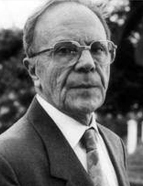

Joel Serrão partook of these ideas, as attested by his initial publications. The vicissitudes of life coupled with a keen interest in Fernando Pessoa led to his publication, in 1945, of the letters Pessoa had written to Armando Côrtes-Rodrigues, who Serrão had met in the Azores. In the preface, Serrão revisits some of the ideas he had already advanced in Horizonte, that is, the need for Portuguese intellectuals to adopt a scientific approach, including an analysis of the author of Mensagem [Message] as being far too apologetic (Cartas de Fernando Pessoa a Armando Côrtes-Rodrigues [Letters of Fernando Pessoa to Armando Côrtes-Rodrigues], 1985, 10).
This path on which he embarked with Fernando Pessoa – a poet he continued to study -, among a large group of Portuguese intellectuals, may be considered a milestone in Serrão's historiographical trajectory. He wished to understand the renowned figures of Portuguese contemporary thinking in their complex interconnection with their surrounding social, cultural, technical, and mental environment - Man in his environment, of course, but also with particular sensitivity to the psychological profile of those figures, which endowed them with a specific hallmark in their understanding of their time and the ability to gauge it (A emigração portuguesa – sondagem histórica [Portuguese emigration – a historical survey] 1977, 219). Joel Serrão proceeded thus, in the wake of advances in the biographical studies of new French historiography, of which Lucien Febvre is an example. It was precisely from Febvre that Serrão took one of his favourite concepts – mental set of tools (outillage mental) – which per se accounts for this affiliation. Concepts such as conjuncture and structure are equally frequent in his work and, as an object of study, he pays particular attention to the concepts of revolution, social class, people, bourgeoisie, Sebastianism, etc. Besides Pessoa, and to name but a few, Antero de Quental, Sampaio Bruno, Manuel Laranjeira and Cesário Verde were also the target of attention of this Madeiran historian.
Ultimately, his urge to understand the correlation between man and his environment from the perspective of sociology of literature, which structured Serrão’s historiographical trajectory, resided in his belief in the absolute value of the human being as the defining element of the present and future; a constant struggle to understand and control the conditioning factors of life in society, albeit not in absolute and mechanistic terms. Only by knowing our dependencies can we aspire to the awareness and control of our freedoms. (Emigração portuguesa – sondagem histórica, 13; Temas de cultura portuguesa [Themes of Portuguese Culture], 1960, 19).
